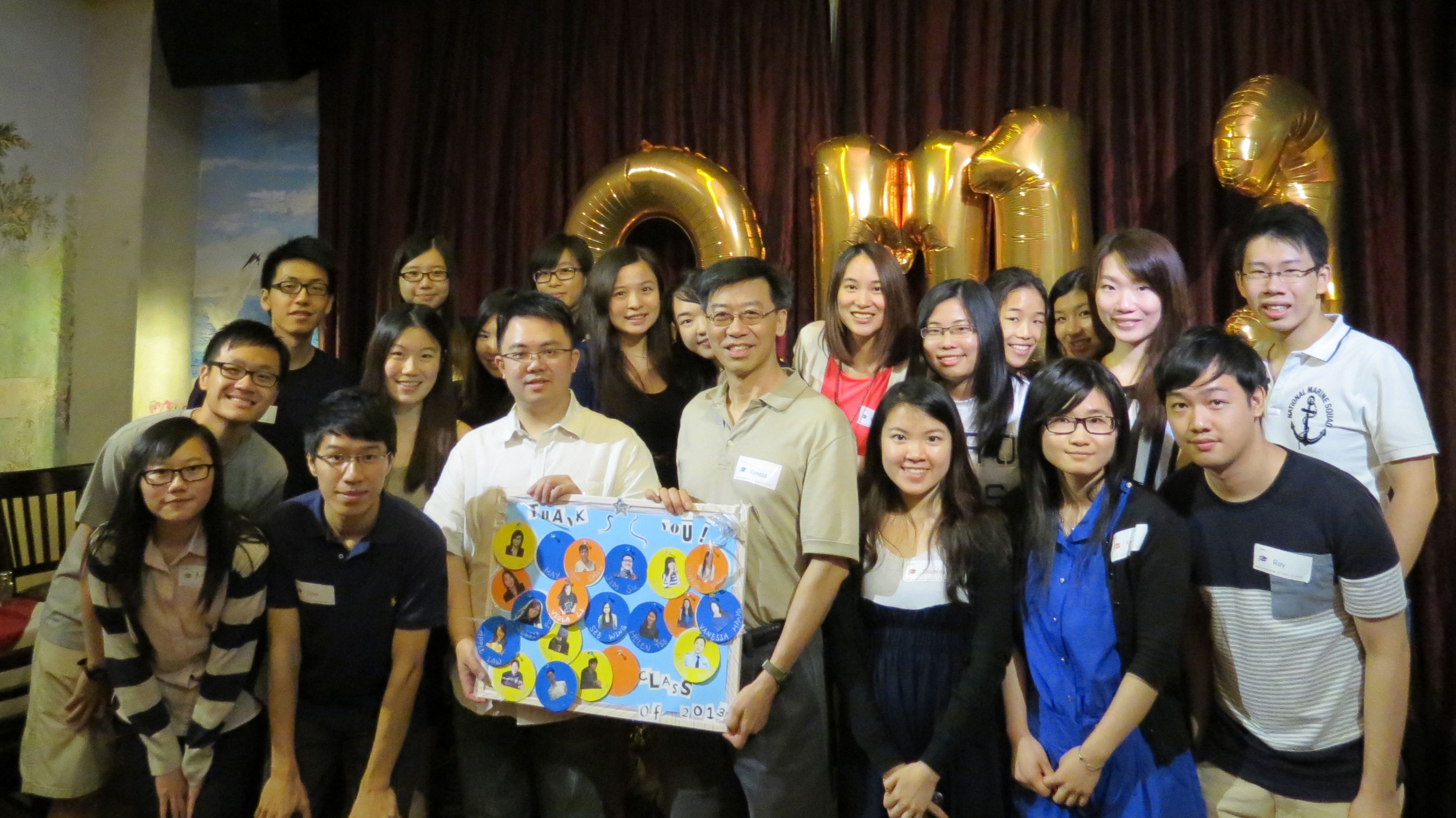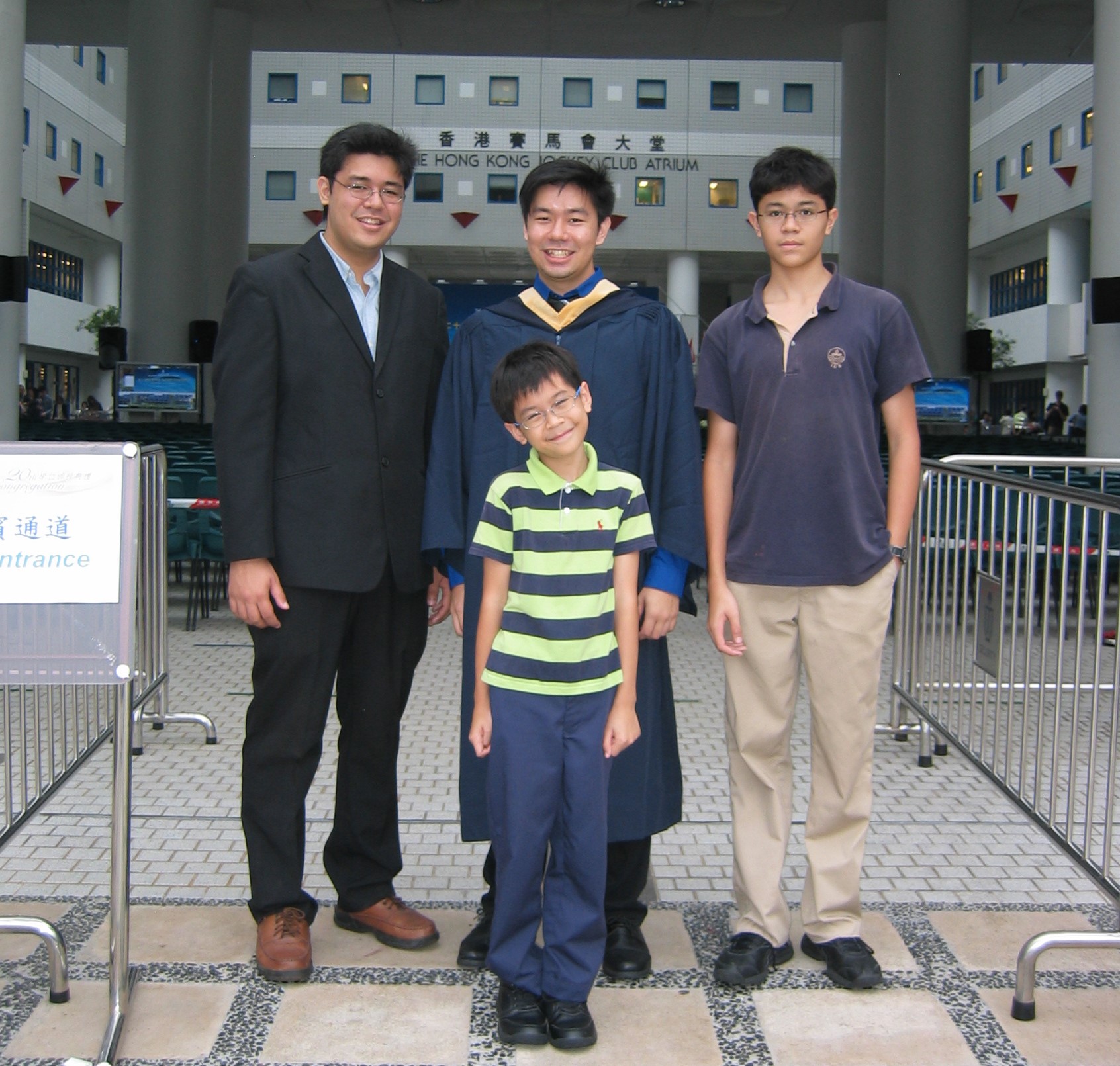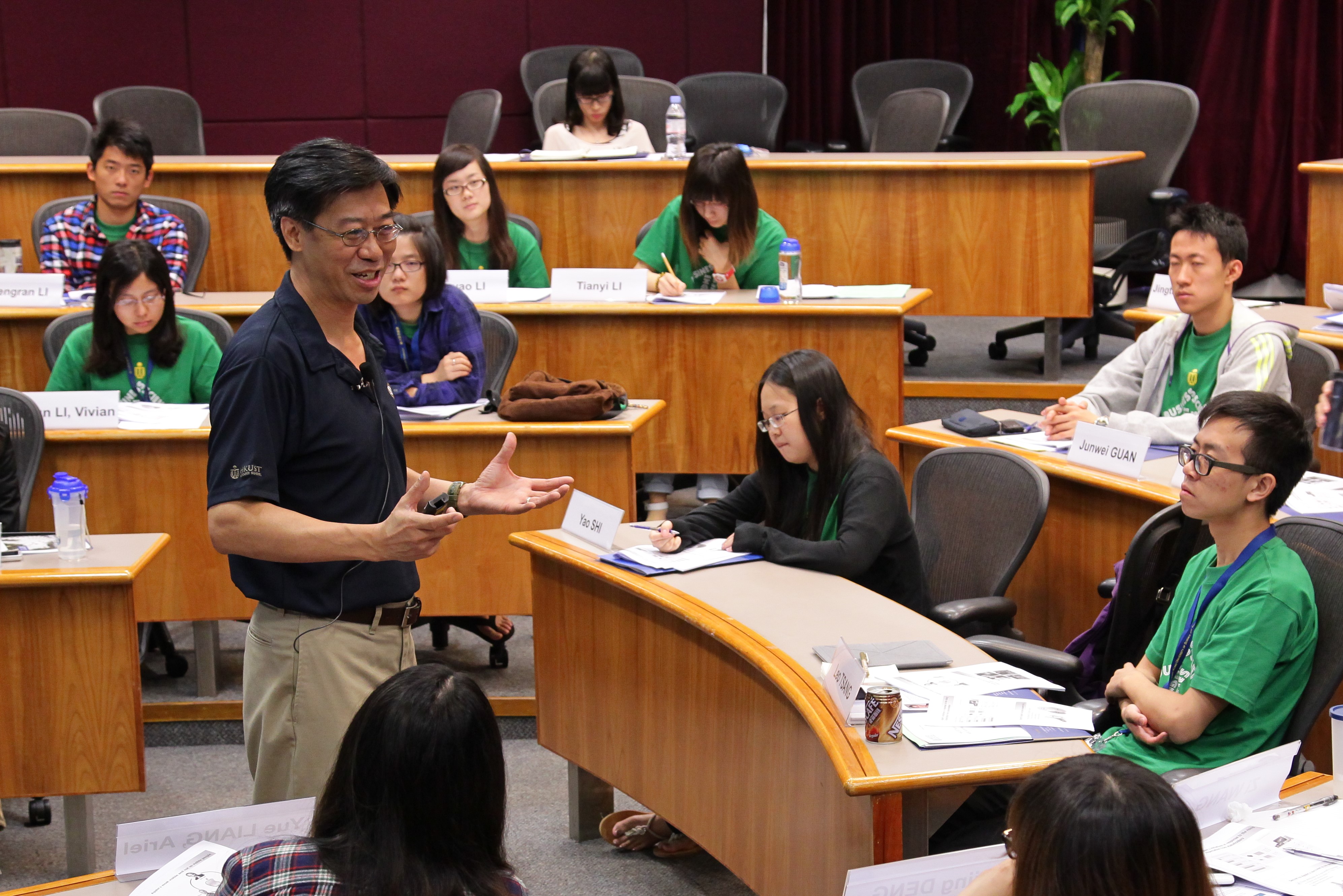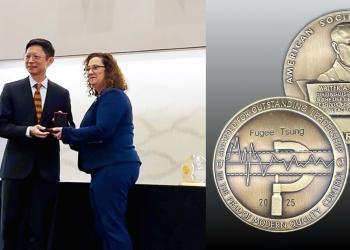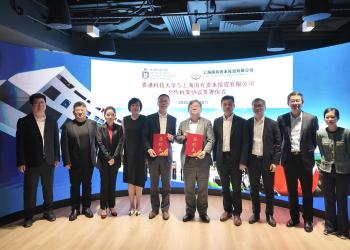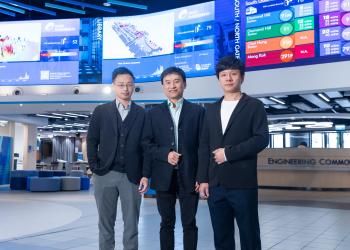Business Education as a Family Tradition
Professor Ronald LAU knows HKUST and the School of Business and Management (SBM) well. A long service award recipient, he has spent over 20 years here, first as a Visiting Associate Professor and then as Associate Professor and UG Program Coordinator (Operations Management) at the SBM. He has taught many generations of students including all four of his sons.
I did not think teaching would be my life-time job.
“I did not think teaching would be my life-time job,” Prof. Lau chuckles. “When I graduated from secondary school, my grades were not good enough to get me a place into university. I started working as a cost and operation analyst in a bank while studying to become a certified management accountant before I went to study in the US.”
After getting his PhD in management science, Prof. Lau had been teaching in the US for more than a decade and raised a family. In 2001, he made the decision to join the SBM as the School was looking for a teaching faculty who was able to blend international business pedagogies with Hong Kong ones. He did not expect that the job would last for more than two decades, and that HKUST would become the dream school for all four of his sons.
“Dad told us we would come back for two years, but it never happened,” says Joshua (BBA-GBM, 2011), the eldest son. “The next thing we know, we would call Hong Kong our home.”
Never settle
As Prof. Lau settled his family in Hong Kong for his children to grow up, his teaching methods never did. While teaching cases studies in traditional North American models would be easy, the storylines and challenges facing those businesses are not often well understood for students living outside the US, which made localization a priority in his classes.
My teaching priority was to bring familiar household business cases to the classroom.
“Case studies are very useful tools in business schools, but here we are in Hong Kong I found it important to localize our cases so that our students would get a better understanding. I brought to the classroom examples of the familiar household names. I challenged my students to come up with solutions on real, closer-to-life scenarios and situations. It was visible that students’ interest in the subjects shot up to another level,” says Prof. Lau.
Outside the classroom, the pragmatic and application-focused approach to business has been a frequent topic during family grocery trips.
“When we were small, dad would make us count efficiency on groceries shopping. How many boxes of cereals and milk should we buy? And how fast could we finish them all before they turn bad? We were trained to think in rational ways from a young age,” says Michael (BBA-MARK, 2012), the second son, referring to those common operations management problems such as capacity planning and inventory control.
As the business world is evolving, Prof. Lau increasingly focuses on academia-industry collaborations.
“In the last 10-plus years, I spent a lot of time doing company projects with students, which is a good way to connect with the industry. I’m always trying to make my subject more practical, literally a mixture of skills and what’s happening in the world,” says Prof. Lau.
Business in the family genes
We tried our best to attend Dad's classes, just like we can never have enough of his lecture.
The boys agree that studying business is like a natural choice for them. “Even though we’ve been taught business indirectly for 20 years, we would still try our best to attend Dad’s classes after we got in HKUST,” says Joshua, while they all need to declare conflict of interest if the sons were to attend Prof. Lau’s classes.
“I’m glad that they all went to HKUST, where they could enjoy a world class education at a fraction of the cost than in the US,” says Prof. Lau.
“I would say the business education here is a holistic one including both hard skills and soft skills like teamwork and communication that set me up for my career in the supply chain software profession,” says Matthew (BBA-GBUS, 2020), the third son, whereas the other brothers appreciate diversity.
“Growing up in the US and then going to high school in Hong Kong, I would always meet only people with a similar mindset as myself. But after meeting so many different people in my three years at HKUST, my horizons broadened, and it made me learn about other perspectives in life which was instrument in shaping the way I think and act today,” explains Joshua.
“It is really quite diverse here, even though we are now in the midst of a pandemic,” says Nathan, the youngest son who was born in Hong Kong and now a year-one student. “We may be missing international students, but the community is ambitious and creative, and I am really looking forward to growing together with them.”
After more than 20 years of service, Prof. Lau is considering retirement in a few years, but HKUST will always hold a special place in his heart.
“The world is constantly changing, and so must our way of thinking and teaching,” says Prof. Lau. “Hong Kong is already part of the Greater Bay Area. The innovation, speed of growth and potential in our neighboring areas are astonishing. How does the University make our proximity an advantage? We can certainly prepare our students better to realize what they can do and achieve in the GBA. That is a geographical advantage waiting to be exploited by us.”
Success = Opportunity + Preparation + Passion
To achieve that, Prof. Lau says business students must prepare themselves by not just learning only in the classroom, but also pay more attention to the many geopolitical and technology trends that impact the business environment.
“As I always remind my students this algebra: ’Success equals opportunity plus preparation plus passion’. Opportunity is right here and right now. Preparation is what we can work together with the students to create the most effective learning environment so they are ready for the future challenges. At the end of the day, they must be passionate about what they are doing and that is really up to them,” advises Prof. Lau.







